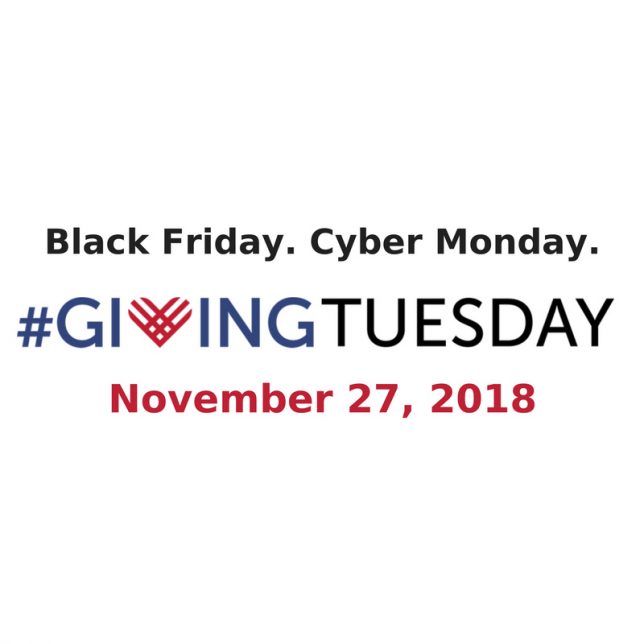Philanthropy
How You Can Give Back on Giving Tuesday
 Photo courtesy of Giving Tuesday
Photo courtesy of Giving Tuesday

In the midst of Thanksgiving Thursday, Black Friday, Small Business Saturday, Cyber Monday, and an extended stay with your beloved in-laws, the very last thing on your mind is what am I doing for Giving Tuesday?
And what is Giving Tuesday, anyway?
But don’t worry, the Capital Research Center is here to help answer your burning philanthropy questions so you can focus on the most important thing: giving wisely to a charitable cause of your choice.
Giving Tuesday is a chance to give back after the initial rush of Thanksgiving and the holiday shopping season subsides. The “global giving movement” was started in 2012 to help fund nonprofits focusing on a range of causes across the U.S. and the world. Since its inauguration, the movement has grown enormously, from just $12 million in 2012 to a whopping $168 million in 2016. According to Giving Tuesday’s website, the project has already earned over $300,000,000 in 150 countries and it’s expected to surpass $363 million in donations by the end of 2018, according to the data firm Whole Whale.
So who does this cash benefit? According to the group’s latest annual report, donations made on Giving Tuesday historically benefit groups supporting education, children’s services, women and girls, health, and disaster recovery—often through donor-advised fund gifts.
Checking Charities Out
The discerning giver will want to do some quick investigating into a nonprofit before cutting it a check, and there are a few resources available.
ProPublica is a leading database on nonprofit financial information, most notably groups’ IRS Form 990 statements. A glance can reveal any nonprofit’s location, mission statement, tax exemption status, and financial state, including its assets and annual budgets.
InfluenceWatch is CRC’s new encyclopedia on the Left and an excellent tool for givers to connect the dots on what causes and groups that charities fund. At InfluenceWatch.org, we are building a growing database on the connections between nonprofits, politically active firms, and activist influencers—and how they use money to affect the political process. With our system, you can view the latest Form 990 financial statements and see how key political players connect with other groups.
You might be surprised at some of the more innocuous-sounding influencers actually do:
You might know British rock star Roger Waters from his time as the former front-man of the band Pink Floyd. What you might not know about Waters is his support for the radical anti-Israel Boycott, Divestment, and Sanctions movement, or BDS. Since at least 2009, Waters has been an outspoken critic of the state of Israel, petitioning fellow musicians to skip tours in the country and claiming that whoever performs there is giving “succor to the Israeli government’s apartheid policies.”
Have you ever heard of a conservative carbon tax? You soon will—if RepublicEn gets its way. From its headquarters at George Mason University, the nominally right-leaning group has advocated for policies to combat global warming, including enacting massive new taxes on carbon dioxide emitters. RepublicEn’s founder, former Rep. Bob Inglis—who lost his congressional seat in 2010 due to his views on global warming—has been hailed by the environmental Left trying to turn a left-wing talking point into a Republican Party policy, earning him praise as the “conservative who believes that climate change is real.”
End Citizens United wants to get money out politics… by pouring tens of millions of dollars into political campaigns. This Democratic PAC spent just over $25 million in the 2018 election backing left-wing candidates who want to overturn the Supreme Court’s 2010 Citizens United decision preserving free speech in elections. But millions of dollars from the PAC went to a little-known consulting firm, Mothership Strategies, which just happens to share the same founders and leadership as End Citizens United. Coincidence?
These are just a few examples in a growing trove of nonprofit information you can use to make sure your money goes to a cause you support, and not one with the best-sounding name. Check it out at InfluenceWatch.org.


